An experienced performance coach helping you reach your potential – Paddock Magazine’s Dániel Horváth sat down to have a chat with John Noonan performance coach, who also works with Frederik Vesti of Prema Racing. We utterly enjoyed this conversation with John, who has lots of experience and he truly has an inspirational personality.
Click here to subscribe to our print edition!
When did you decide that you want to become a performance coach, how did your journey start?
Well, I guess like many coaches, my dream was to be a pro athlete, but sadly my football skills weren’t quite up to scratch, which lead me to study more in the sports area, and sports science very quickly became a big passion. It was around the early 2000’s, I pursued University studies alongside working as a trainer in public gyms, experimenting with different training routines whilst getting to grips with coaching. I’d enjoyed my early experiences and started to get some experience working with professional sports as a strength and conditioning coach, in particular Premier League football. It was through these formative years learning how to prepare athletes for competition that my interest in the performance sciences grew.
After a few years, I was fortunate to gather working with professional rugby and eventually TeamGB athletes in preparation for the PyeongChang 2018 Winter Olympics. I really enjoyed the challenge of understanding how to prepare individuals to excel in competition, which lead me to work more with individual sports, such as pro golf, squash, and eventually motor racing. Now in my fifth-year coaching drivers as a Performance Coach, working with individuals like Frederik Vesti, providing a hybrid of training, performance therapy and mindset coaching.
He’s [Frederik Vesti] a gifted talent and incredibly hard-working.
How did you end up working in motorsports and how did you get in touch with Fred?
In motorsports, you’ll appreciate yourself, it’s quite a niche environment. You don’t generally see jobs posted on public boards, which means your network becomes increasingly important. Personally, I’ve built relationships with several people connected with this sport and was eventually given an opportunity to work with a French driver, Giuliano Alesi. During this time, I also remotely supported Frederik Vesti before I started to work trackside with Fred in Formula 3 prior to his step up into Formula 2. Working with Fred has been an exciting project. He’s a gifted talent and incredibly hard-working, and now we find ourselves at the door of potentially a very exciting opportunity for him in the near future.
What are the most important properties a performance coach needs to have?
Broadly speaking, you need to be fundamentally curious about the performance problems you’re trying to solve. Much like the engineers, they have so much technology, and information on the car, where they can make some really well-informed, logical and rational decisions based on data. Conversely, when we’re working with humans, the right decision isn’t necessarily always necessarily based on data. And in that sense, we’re trying to truly understand the profile of a driver behaviourally, mentally, physically, and put processes in place that enable them to close the ‘performance gap’ to become better at the areas where they struggle the most in terms of their performance. With respect to data, we have some information that helps us understand the physical demands of the sport. We’re able to measure and track some of the external challenges a driver endures, such as: regular airline travel, sim practice, media duties, physical training, and racing in hot climates, across 5-continents.
Consequently, each of these stressors has a direct internal response, adding strain physically and mentally, which needs to be well managed ensuring drivers can perform at their best week after week. Therefore, as a performance coach you’re really trying to provide a package that gets a driver in the shape to physically perform, but also mentally makes them resilient enough to cope with the demands of racing 19 other cars at 300+ kph with the world watching there every move, live. Essentially, the cornerstone of a driver’s performance really comes down to how capable are they are at adapting to stress, pressure, and adversity on and off the race-track – helping a driver do this is the quintessential role of the performance coach in my opinion.
You need to be fundamentally curious about the performance problems you’re trying to solve.
Do you use the technology to analyse the performance of the driver? Do you have a software that you’re using to follow up the development?
Due to the FIA safety regulations, we’re not able to monitor drivers’ biometrics live in the car, which is perfectly understandable. There is however a growing movement toward providing teams a much-needed insight into the physical stressors of driving a high-performance race car. In the absence of data, naturally we lean harder on subjective feedback and insights, which requires a very open and honest relationship with the driver. Sometimes even using an arbitrary scale out of 10, asking “how difficult was that session for you?” can open a door into a conversation around how we may need to look at things a bit differently for the next session, for example.
In terms of tracking data, we’re able to do this more so away from the track in the training environment, through monitoring sessional heart rate, loads lifted in the gym, and the relative impact of training via things like heart rate variability, resting heart rate and CNS fatigue. As well as being responsive to changes based on the data we collect, we also try to proactively manage periods of high travel, competition, and training effectively through smart scheduling and programming. For example, there are times when we need to off-set periods of congested travel and racing with increased recovery and sleep strategies, other times we need to specifically train more to physically prepare for periods of high physical strain; be that heat stress and performing at altitude. Invariably, it’s about striking a balance based on the various information you have, and building effective relationships with the driver, key stakeholders, and recognising what the driver needs to perform at their best.
Do you need to train a football player and a racing driver differently or are the core values identical?
That’s an interesting question. Without doubt, the demands of this sport are very different to other sports: The combination of racing a car at high speeds, around various circuits, in hot conditions, at high heart rates, high G-force loading on the head/neck during cornering and braking, whilst making countless switch changes to the steering wheel, engineer comms, all whilst engaging in car-on-car duals for track position, pose an array of high-level challenges. With this considered, a drivers’ mental capacity to process and execute an array of tasks, joined with high emotional control are arguably the most important attributes outside of their ability to drive a car that makes them phenomenally good behind the wheel.
With that in mind, we need to be fit enough to compete, but mentally skilled enough to endure. The challenge however is understanding where the biggest needle mover is for each driver. For example, now we’re at a stage with Fred, were making him 5-10% fitter won’t necessarily make him 5-10% more likely of getting on the podium. That doesn’t mean his physical fitness doesn’t matter, but for this individual his fitness is already excellent, therefore our time is more worthwhile improving other elements of this performance.
Broadly speaking, we must arrive at the start line fit enough so that our physical fitness doesn’t limit our mental capabilities. Because if fitness is lacking, we know this dramatically reduces his ability cope with the impact of fatigue upon decision making while racing. We want to unburden the cognitive constraints of driving, that’s probably the area that’s more than likely to develop in sports science the most in the next decade. While the Formula 2 calendar isn’t as demanding as Formula 1, the holistic demands on a driver are similar during a race weekend; multiple sessions, similar cars, albeit with less top speed and horsepower, yet same environmental conditions and pressure to win. Undoubtedly, the processes you learn as a Formula 2 driver serve as an important foundation in a young driver’s preparation for Formula 1 competition.
Without doubt, the demands of this sport are very different to other sports.
Can we say that the fitness level of a Formula 1 and Formula 2 driver is comparable?
If you were to compare the maximum fitness levels of single-seater drivers yes, they’re similar. Perhaps a nice comparison for the lay person would be to compare drivers with endurance cyclists. For Formula 1 drivers on a Sunday, their heart rate is going to be roughly around 80% to 85% of their maximum, ~180 beats a minute, and they’ll hold that for 2-hours, which isn’t too dissimilar to the heart rate of endurance cyclists during a Tour de France stage.
We know from fitness testing in the lab that elite drivers have a VO2max in excess of 60 mL/kg/minute, which is similar to good endurance athletes. Having an excellent level of fitness is not only important for racing, but important to cope with the rigours of frequent airline travel, training, and a changing performance environment across the season. Physical fitness is not only important to our on-track performance, but essential to cope with a high-performance lifestyle.
How much time do you spend with your driver outside of the race weekends?
Like many high-level athletes who are traveling the world we try to give them a little bit of breathing space in the first 24-48 hours after a race. So, we’ll respect that window and then afterwards we’ll get together, and we’ll start to unpack the weekend a little bit more. We’ll tease out the most valuable points and lessons that we want to take forward into the next event. What lessons do we need to be aware of? What areas could we have done a bit better that we probably can carry forward and build a process around for the next race? Once we’ve had some of those conversations, invariably if there’s a week or two weeks before the next event, we’ll do some physical training. Depending on how long we’ve got, there’ll be a focus on either maintaining where we are, or we’ll push to improve certain physically qualities.
For Fred, we’ll get together most weeks where we can, amongst sim driving, media and management duties. When Fred is away from the track, striking the right balance means that he’s well rested, he’s trained, happy, and he’s had some contact with his family and friends is important. As a travelling athlete, these guys need time to reconnect with their families and friends outside of the racing bubble and do the simple things the everyday person does – this is so often undervalued. Then, we get back to the racing schedule and think about what do we need to be working on so when we arrive, we’re well rested, we’re focused, and we’ve touched on some of the physical corners that we know give us the confidence coming into race weekend?
During a race week, there’s limited opportunity to do much training. You might see some drivers visit the gym on a Tuesday/Wednesday. On a Thursday occasionally you see some of the F1 guys doing some laps on their bike around the track, low level conditioning stuff. In a race week, we’re trying to do less, not more. Sharpen things up, dial in the last little bits, and then we’re looking to perform.
We need to be fit enough to compete, but mentally skilled enough to endure.
I saw on your website that you offer coaching for athletes and business leaders, can you elaborate a bit on this?
Athletes and business leaders might live very different lives, but they share similar challenges, from congested travel/work schedules, regular changes to their sleep and work routines, managing several projects from development to execution, and high-level decision making under time constraints, to name a few. High performers recognise their health (physical and mental) is the foundation to their short and long-term success. With this in mind, we provide clients with a combination of comprehensive physical assessments and physical training, specialist support; spanning injury rehabilitation, nutrition, sleep, and jet lag management, as well as performance mindset coaching via our team of experts.
To date, we’ve helped 100’s of clients achieve success from winning podiums and world cup competitions, to building greater mental resilience, and helping people perform better under pressure, all while managing busy routines, and in many instances building the physique of their dreams. We work closely with our clients to develop bespoke strategies that tackle their biggest problems with effective solutions that get results.
Did you start this business on your own or do you have colleagues who are working on it as well?
Having spent two-decades coaching pro teams and individuals, the challenge to reach a broader number of people in the UK and internationally through my own company, Noonan Performance felt like a natural progression. I’m very fortunate to work alongside some incredibly inspiring and gifted practitioners through my company, who all share a passion for helping high-performing teams and individuals achieve sustainable results.
If anyone is interested in finding out more about how we may be able to help you and/or your team, please contact john@noonanperformance.com, we’d love to hear from you. If you’d like to see pro training tips, follow John on Instagram: @johnnoonancoach.

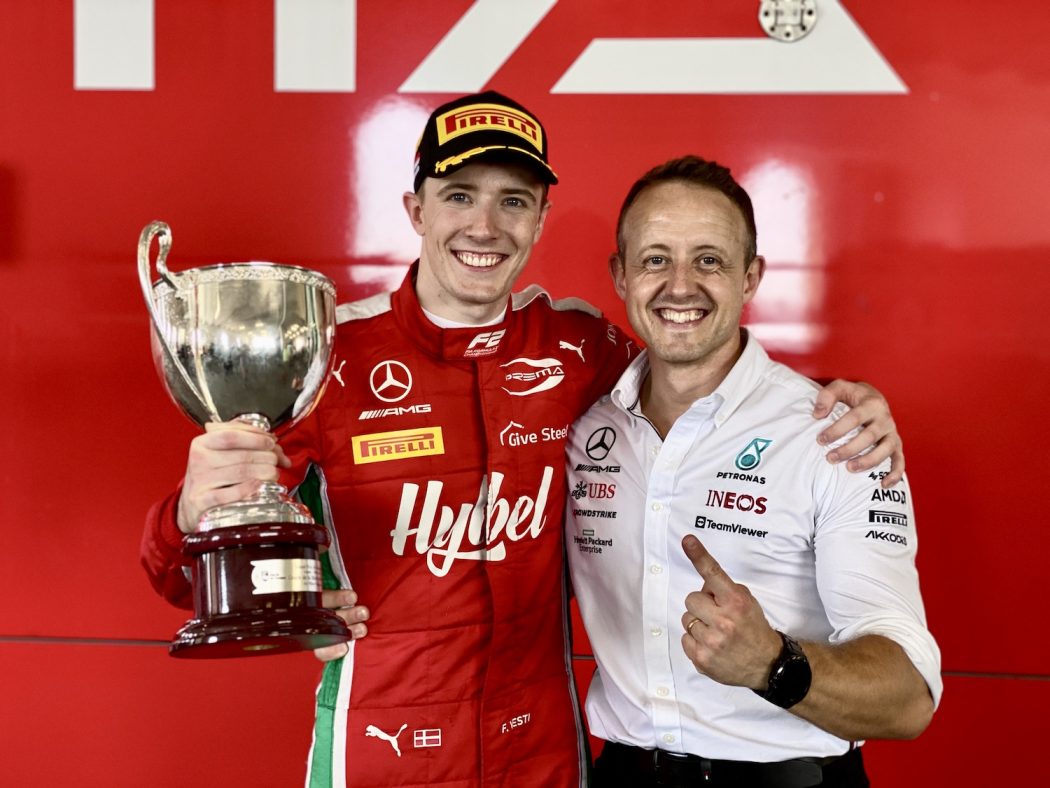
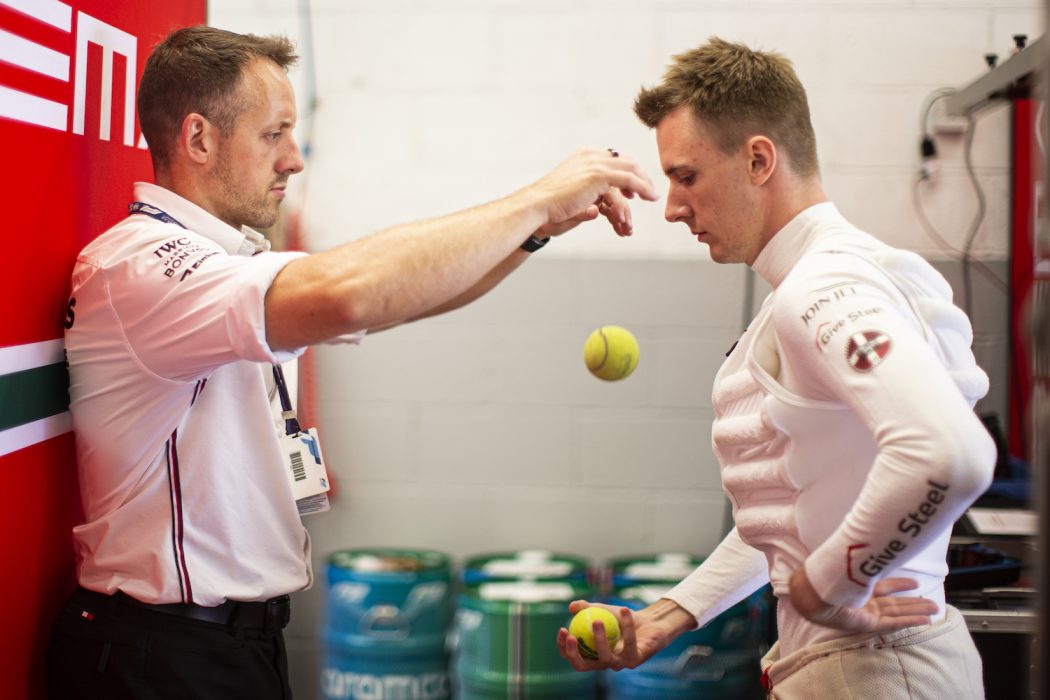
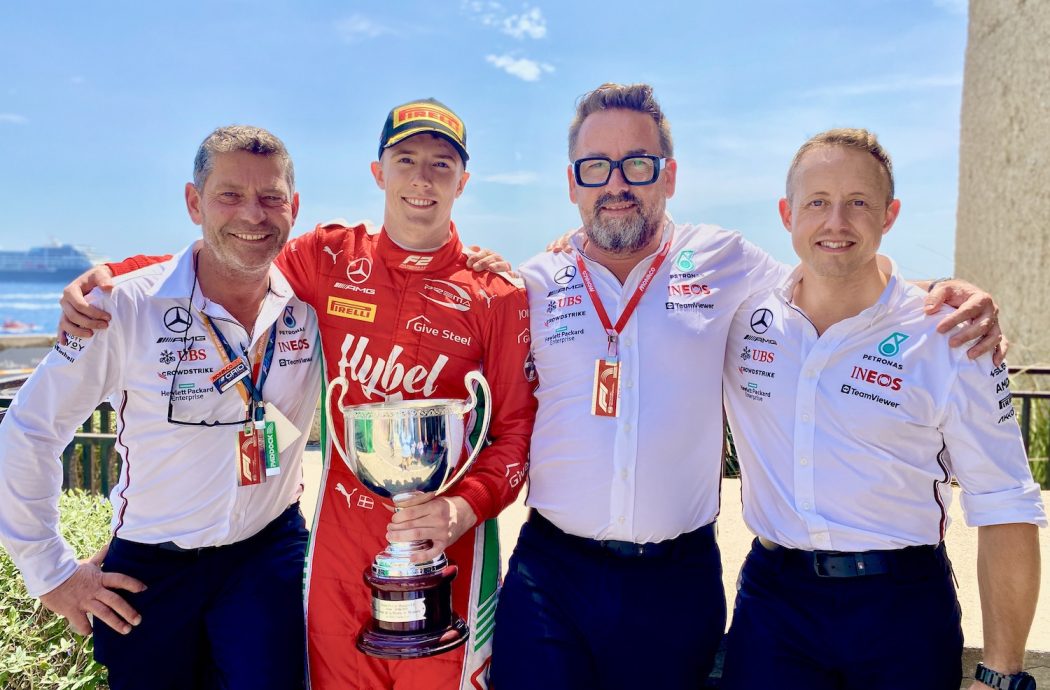
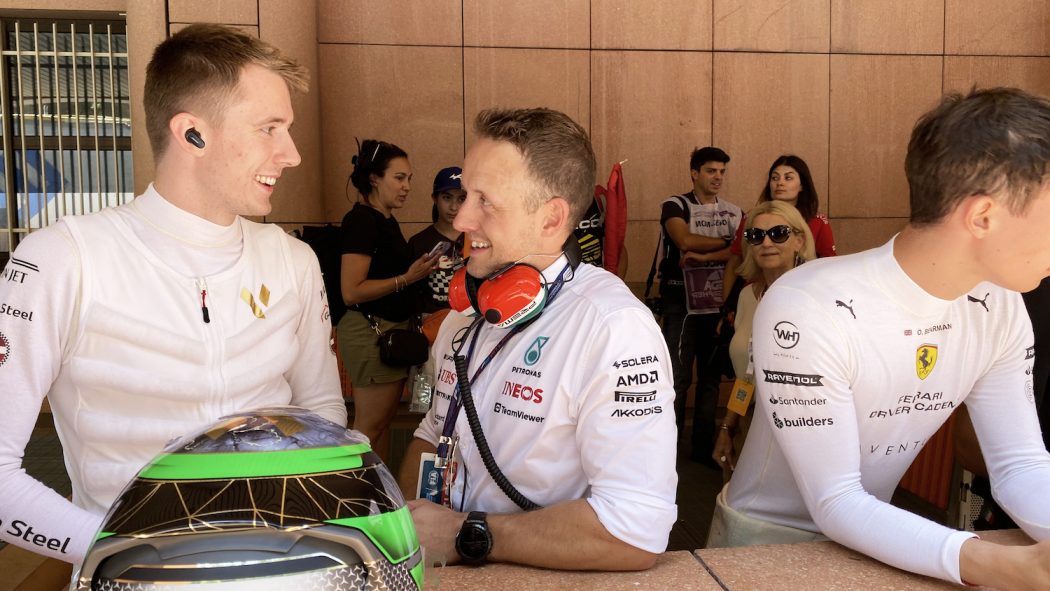

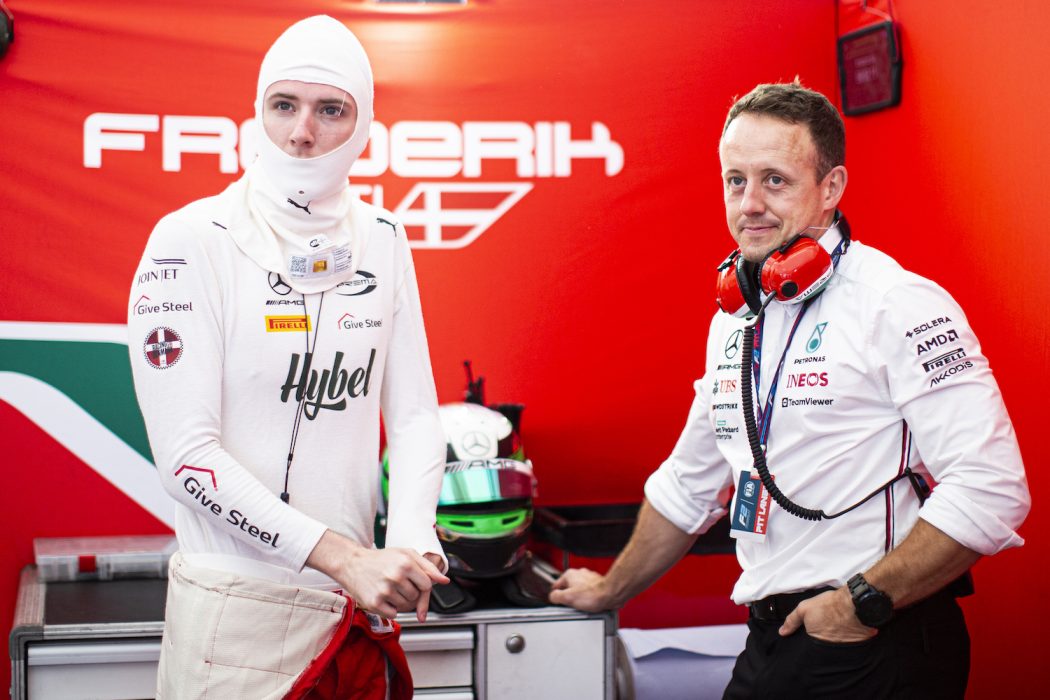




Related Articles